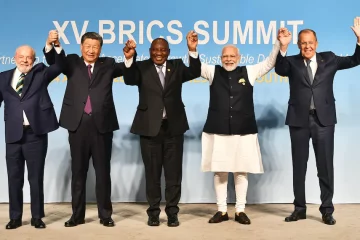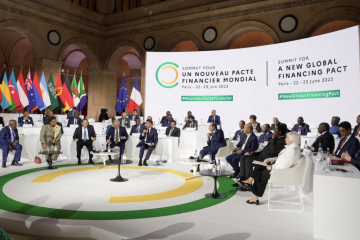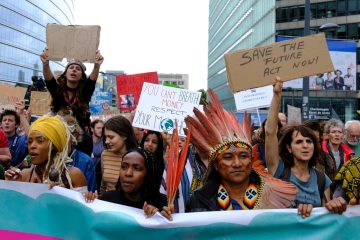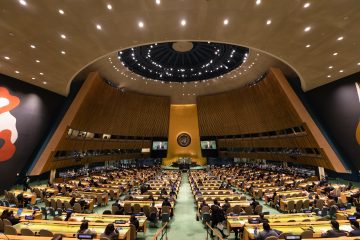
From BRICS to BRICS+: Implications for the Group, Multilateralism, and the Global South
Introduction After World War II, the multilateral system was designed to promote international peace, drive economic growth, and ensure global cooperation. Institutions such as the United Nations, International Monetary Fund, and World Trade Organisation established alliances, treaties, and agreements with the aim of achieving shared prosperity. In recent years, however, cracks are beginning to appear within this system. The world has witnessed a sharp increase in geopolitical crises like the Russia – Ukraine war, withdrawals from treaties, trade protectionism and back-sliding democracies. The multilateral system has also failed to deliver comprehensive solutions to global issues such as COVID-19 and climate change. As the inequalities within the multilateral system become increasingly apparent, calls for change are starting to reverberate across the …

The Paris Climate Summit: A Milestone for the Global South?
International summits are vital to promoting global agreement and laying the groundwork for future international cooperation. The Summit for a New Global Financial Pact took place in Paris, co-hosted by France’s President Emmanuel Macron and Barbados’ Prime Minister Mia Mottley. The Summit, organised with the aim of promoting global unity for international financial architecture form, set out to achieve four main goals focusing on fiscal sustainability and climate change in low-income countries. Amid the worldwide increase in extreme poverty and climate disasters, these conferences provide a platform for building coalitions to resolve urgent humanitarian issues. However, there has been a marked decline in international cooperation and the success of these events. In 2022, the United Nations Climate Change Conference COP27 …

From periphery to core: COP27 and the era of loss and damage
“Already at 1.1-degrees of warming, we are living in an era of unmanageable loss and damage. We on the frontlines are paying the price for decades of wholly insufficient action by those most responsible for the dangerous state of our climate.” (AOSIS’ opening statement at COP27) At the outset of the 27th Conference of the Parties (COP) to the United Nations Framework Convention on Climate Change (UNFCCC), the Alliance of Small Island States (AOSIS) made clear what they wanted to get out of this gathering under the hot November sun of Sharm el-Sheikh. They would not leave Egypt without an acceptable agreement that would reflect their decades long struggle for financial support on loss and damage. And, against all odds, …

Citizens worldwide want a stronger and more democratic UN: Findings from an international survey by Oxford, LSE, and Griffith researchers
This week, political leaders from countries all over the world are gathering for their annual meeting at the United Nations (UN) in New York. Since its creation and to this day, there have been discussions about reforming the UN. Soon after the UN was founded in 1945, public figures like Albert Einstein called for a much more powerful and democratic UN. Today, leaders such as Ukrainian President Zelensky urge fundamental reforms to strengthen the UN, while NGOs like Democracy Without Borders campaign for making the UN more democratic and representative of citizens. In an international survey in six countries worldwide (Argentina, China, India, Russia, Spain, and the United States), Mathias Koenig-Archibugi (London School of Economics and Political Science), Luis Cabrera …









